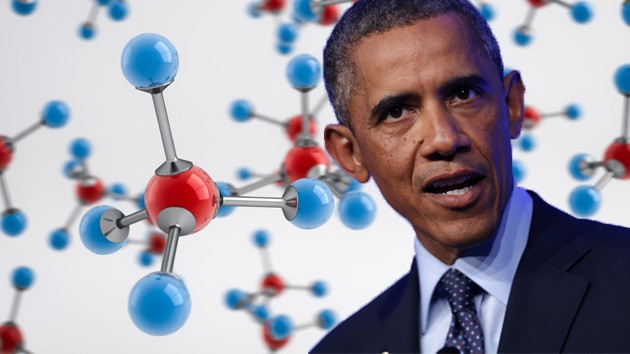Stung by gas prices Obama seeks new oil market crackdown
Post on: 8 Июнь, 2015 No Comment

A motorist pumps fuel into his vehicle at JJ’s Express Gas Plus station in Phoenix gas station in Phoenix, Arizona August 10, 2011.
Analysis & Opinion
WASHINGTON (Reuters) — U.S. President Barack Obama, whose political fortunes are threatened by rising gasoline prices, proposed new measures on Tuesday to reduce oil market manipulation that are unlikely to get support from a divided Congress.
Obama called on lawmakers to raise civil and criminal penalties on individuals and companies involved in manipulative practices.
He also pressed for more money to fund the agency charged with policing the markets to hire more cops for oversight and upgrade old technology.
We can’t afford a situation where speculators artificially manipulate markets by buying up oil, creating the perception of a shortage, and driving prices higher, only to flip the oil for a quick profit, Obama said in the White House Rose Garden.
We should strengthen protections for American consumers, not gut them, he said.
Republicans, who blame Obama’s energy policies for high gasoline prices, called the effort a political gimmick, and said the new measures would not help Americans struggling with high gasoline prices.
It probably polls pretty well, but I guarantee it won’t do a thing to lower prices at the pump, said Senate Republican leader Mitch McConnell.
The president has all the tools available to him if he believes the oil market is being manipulated, said John Boehner, the Republican speaker of the House of Representatives.
SOME DEMOCRATS WANT MORE
Obama has spent weeks trying to show he is on the case to bring down energy costs over the short- and long-term.
Gasoline prices have surged nearly 50 cents since late January, as tensions in the Middle East and supply disruptions bolstered oil costs. While prices at the pump have eased slightly in the past two weeks, gasoline remains around $3.92 a gallon nationwide.
Republicans have argued the administration needs to allow more drilling to help lower prices. But the only way to reduce the harm caused by gasoline price increases is to use less of it, said Andrew Holland, an energy policy analyst at the American Security Project, a Washington think-tank.
The truth is, neither party is offering policies that will effectively address high gas prices, Holland said.
Senior administration officials, speaking to reporters on a conference call, said increased volatility in oil markets justified the need for the crackdown.
While congressional Democrats praised Obama’s move, many have pushed him to go farther.
I would do some additional things, but basically I’m very pleased that he’s responding, said U.S. Senator Carl Levin, a Michigan Democrat whose investigations subcommittee in the past has linked speculation to higher commodity prices.
Levin and other senators want the administration to push the Commodity Futures Trading Commission, or CFTC, to enforce limits on speculation that were part of the Dodd-Frank banking reforms.
The financial industry has challenged those limits in court.
Senator Maria Cantwell is working on legislation that would ban commodity index funds from the oil market, a move backed by consumer advocates.
Peter Welch, a Democratic congressman from Vermont, said Obama should also release oil from U.S. emergency reserves to further dampen speculative buying.
When it’s been deployed in the past, it has spooked the speculators, Welch told Reuters.
HIGHER PENALTIES
Obama also asked Congress to give the CFTC the power to increase traders’ margins in an effort to reduce risky trading. Currently, futures exchanges are in charge of setting margins, based on volatility.
Obama’s proposal drew a quick response from the CME Group, the world’s largest operator of futures exchanges.
Taking away from exchanges the ability to manage margins would make the markets less efficient, less tied to fundamentals and would create the potential to push the hedgers out of the market, which would make oil more expensive for all consumers, the company said in a statement.
The CME also warned against confusing speculation with manipulation, and said speculations play an important role in helping oil producers and consumers offset their price risks.
The CFTC filed a record number of enforcement cases last year, but has yet to win a manipulation case involving oil.
Its lone victory is a 1998 case that accused a trader of gaming electricity futures, which took more than a decade to settle.
The CFTC is engaged in a high-profile case against oil merchant Arcadia Energy for allegedly manipulating physical oil supplies to profit on futures trades.
Obama said he wants Congress to hike civil penalties for firms involved in market manipulation to $10 million from $1 million, and also increase maximum criminal penalties.














